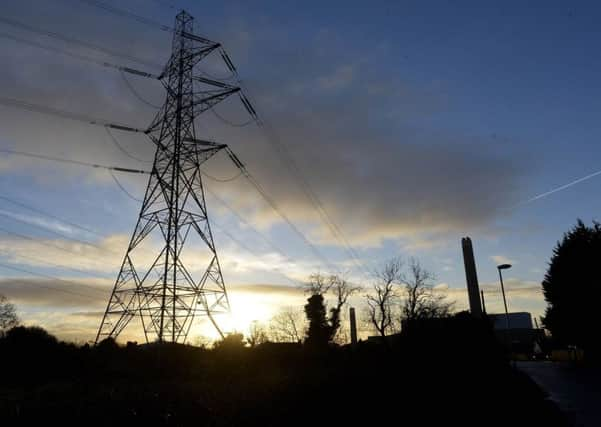Tories tried to hide price hikes after NIE was sold


Files released at the Public Record Office in Belfast under the 20-Year Rule show tension between the treasury and the Northern Ireland Office over the scale and timing of the price hikes – which the government believed needed to be about 50%.
It appears that the Treasury, which was attempting to maximise the return for taxpayers from the sale of power stations such as Ballylumford and Kilroot, was concerned that if tariffs were not allowed to rise steeply then it would receive less from whichever company bought the plants.
Advertisement
Hide AdAdvertisement
Hide AdThe issue came to a head in an unusually frank letter from Francis Maude, then the financial secretary to the treasury, to the Northern Ireland secretary of state, Peter Brooke.
In the letter, which was copied to prime minister John Major in September 1991, Mr Maude wrote: “You recognised that electricity prices in the Province would need to rise by some 50 per cent in real terms over a period in order to reach economic levels, and expressly presented the 8.5 per cent increase in prices in 1991-92 as making a start on raising tariffs progressively towards those levels. This is clearly right, as you yourself acknowledged, regardless of privatisation, in order to give the right economic signals to electricity consumers in Northern Ireland
“The proposals in your latest letter, by contrast, imply a very significant (12 per cent) real reduction in prices next year, and reaching economic levels only by 2024-2025. I cannot agree to such a radical resiling from the policy agreed as recently as February.”
An exclamation mark has been handwritten in the margin beside that comment.
Advertisement
Hide AdAdvertisement
Hide AdThe letter went on: “You refer to the gap between NI and GB prices. It is too early to forecast the effect on GB prices of renegotiating the British Coal contracts. Your advisers have, however, probably over-estimated that effect, and therefore the extent of the gap. But it was always clear, when we took the decision to break the link, that the need for NI prices to rise to economic levels meant that there would be a widening gap.
“The proposals discussed between officials already go a very long way to protect consumers against too rapid price increases. They imply prices reaching economic levels still well into the next century, and at least a decade later than advisers predict would be the outcome if post-privatisation prices were left to the market.
“Your proposals would represent a massive additional, and unwarranted, subsidy to NI consumers by the backdoor.”
Mr Maude then went on to set out a proposal whereby the government would claim that the absence of price rises immediately after privatisation was a “benefit” of the power stations moving into corporate hands, when in fact the government knew that was not the case and prices would be rising steeply in future years.
Advertisement
Hide AdAdvertisement
Hide AdMr Maude said that his proposals “represent the appropriate balance, which I agree we must find, between the need to secure value for money from the sale and the interests of NI consumers”. He added bluntly: “You cannot reasonably ask me to go very much further.
“Nonetheless, I recognise your obviously very real unease about the effect even of those modest proposals, and in particular your concern to avoid real price increases in the early years of privatisation, at least until the Scottish interconnector has been built and other benefits of privatisation are starting to emerge.
“I am reluctantly prepared to meet you on that point, provided that you in turn are content not to pursue real reductions next year. I believe that you could present this outcome as a significant immediate benefit of privatisation.”
Mr Maude said that Treasury and NIO officials had discussed “a detailed tariff path” which would avoid any real increases until 1996-97.
Advertisement
Hide AdAdvertisement
Hide AdKilroot and Ballylumford came to be owned by AES, a huge US corporation which has been accused of taking excessive profits from electricity consumers in Northern Ireland, although its profit margins are set by the Utility Regulator. In January, Kilroot lost out in a new all-island auction process, prompting AES to say that it will close the plant.